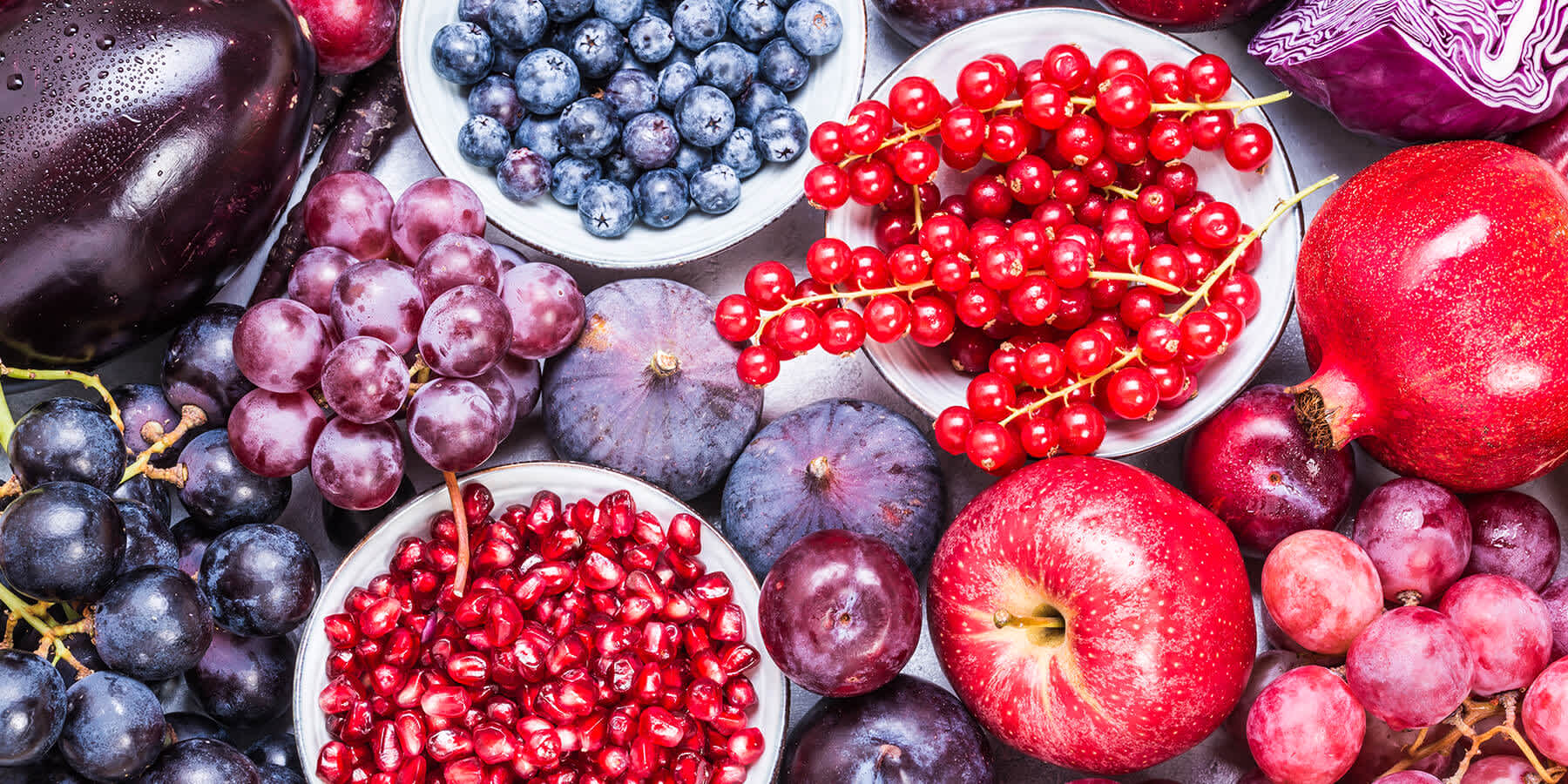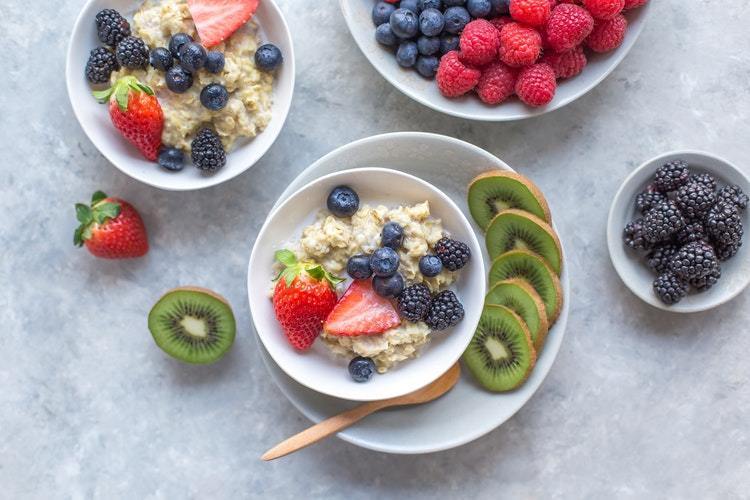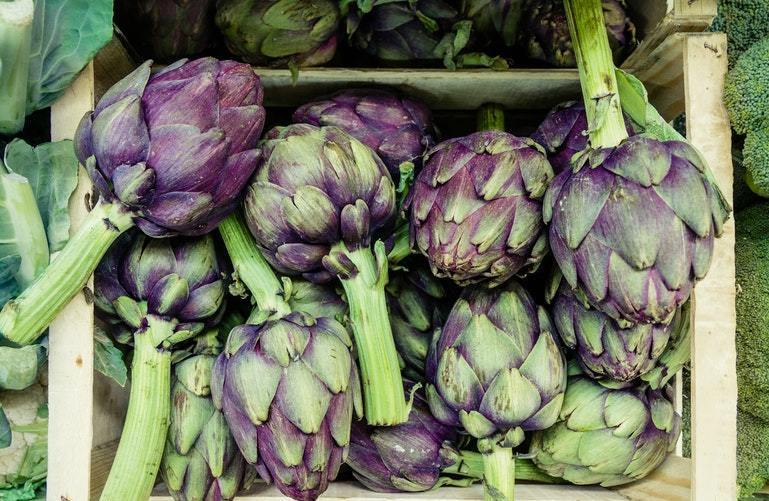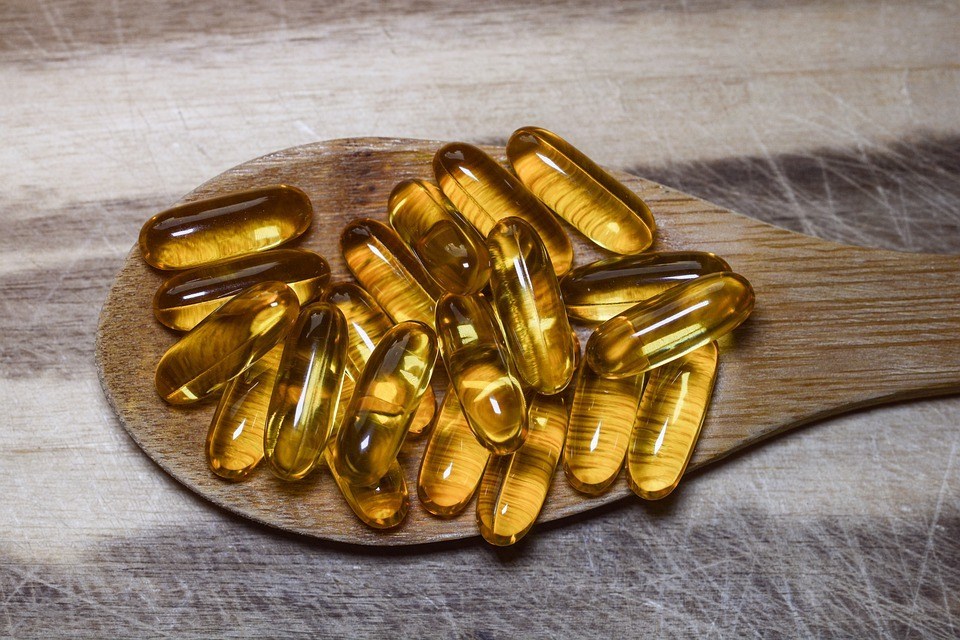
These 6 foods and nutrients can benefit fertility
Scientists have discovered something remarkable: the food you eat can have a very real effect on reproductive health – including fertility. In short, by eating certain kinds of food – and avoiding others – it’s possible to boost fertility.
So what foods in particular can help improve the odds of getting pregnant? Here’s what current research says on the matter.
(Note that if you’re personally concerned about your own fertility, consider taking the Everlywell at-home Women’s Fertility Test).
HIGH-FIBER, LOW-GLYCEMIC CARBS

Increased consumption of high-fiber carbs with a low glycemic index, like oatmeal, is associated with improved fertility outcomes.
If the thought of devouring some delicious, warm oatmeal appeals to you, then here’s some good news: increased consumption of high-fiber carbs with a low glycemic index, like oatmeal, is associated with improved fertility outcomes.
But hold up: just what is the glycemic index in the first place, anyway?
The glycemic index (GI) basically tells you if a carbohydrate-packed food will significantly raise blood sugar levels. Low GI foods don’t cause much of a lift in blood sugar levels, while high GI foods do.
PROTEIN-PACKED VEGETABLES

Eating more vegetable protein (like artichokes) has been shown to improve fertility in women – if and when the amount of animal protein in the diet is reduced.
Here to help with your pregnancy chances: peas, spinach, beans, artichokes – and many other high-protein vegetables. Why? Because eating more vegetable protein has been shown to improve fertility in women – if and when the amount of animal protein in the diet is reduced.
UNSATURATED FATS AND OILS

Bump up your intake of unsaturated fats and oils to enhance your fertility. Most unsaturated fats come from plants – olive oil, safflower oil, peanut oil, and corn oil are all unsaturated fats, for example.
One food choice that can enhance your fertility? Toss out those French fries – and other foods filled with trans fatty acids – and bump up your intake of unsaturated fats and oils, instead.
Trans fatty acids – widely known as “trans fat” – are frequently found in fried foods and, suffice it to say, they’re pretty terrible for just about everyone’s health. That’s especially true from the standpoint of improving fertility, as research suggests that reducing consumption of trans fat – while also ramping up your intake of unsaturated fats – can boost fertility.
By the way, most unsaturated fats come from plants – olive oil, safflower oil, peanut oil, and corn oil are all unsaturated fats, for example – as well as various types of fish. Unsaturated fats come in two main forms: monounsaturated and polyunsaturated – both of which can help with fertility when consumed instead of trans fat.
NON-HEME IRON

Fertility can be improved by increasing consumption of non-heme iron (or iron from plants).
Boosting iron intake is another way you can improve your fertility – but not just any kind of iron will do in this case.
Technically speaking, dietary iron is called either “heme iron” or “non-heme iron.” Heme iron is iron that comes from animal meat, while non-heme iron is found in plant foods (like grain and vegetables).
Fertility can be improved by increasing consumption of non-heme iron (or iron from plants). But getting your iron from animal meat is a no-go if you want to enhance your fertility: eating red meat, for example, might have a negative impact on fertility (though the evidence for this is tentative).
MULTIVITAMINS WITH FOLIC ACID

There’s evidence that regularly taking multivitamins is beneficial for fertility – especially if those multivitamins contain nutrients like folate.
There’s evidence that regularly taking multivitamins is beneficial for fertility – especially if those multivitamins contain nutrients like folate.
Several lines of research suggest that folate might play a vital role in fertility and pregnancy outcomes. For example, it’s known that way-too-low levels of folate can lead to a severe type of developmental defect – called neural tube defects – in an infant, which can affect the course of a pregnancy and contribute to miscarriages.
With this in mind, researchers have investigated how folic acid supplementation can impact a woman’s fertility (folic acid is the synthetic form of folate, a naturally-occurring B vitamin). And in one study of women who were experiencing reduced fertility, folic acid supplementation – 400 micrograms per day for three months – more than doubled the likelihood of pregnancy compared to women in the placebo group.
OMEGA-3 FATTY ACIDS

To give your reproductive health a boost, consider making oily fish a regular part of your diet and investing in omega-3 fish oil supplements.
If you’d like to give your reproductive health a boost, consider investing in fish oil supplements – or make oily fish a very regular part of your diet. Here’s why: according to research on in vitro fertilization (IVF), women who intake high levels of omega-3 fatty acids are significantly more likely to become pregnant compared to women who consume only small quantities of these important nutrients.
CONCLUSION
An abundance of research shows that the right dietary adjustments can indeed improve fertility – though, of course, don’t make any major dietary changes without first consulting your healthcare provider. And if you’d like a detailed look into the exact hormones that can impact your own fertility, just take the Everlywell Women’s Fertility Test from the comfort of home.